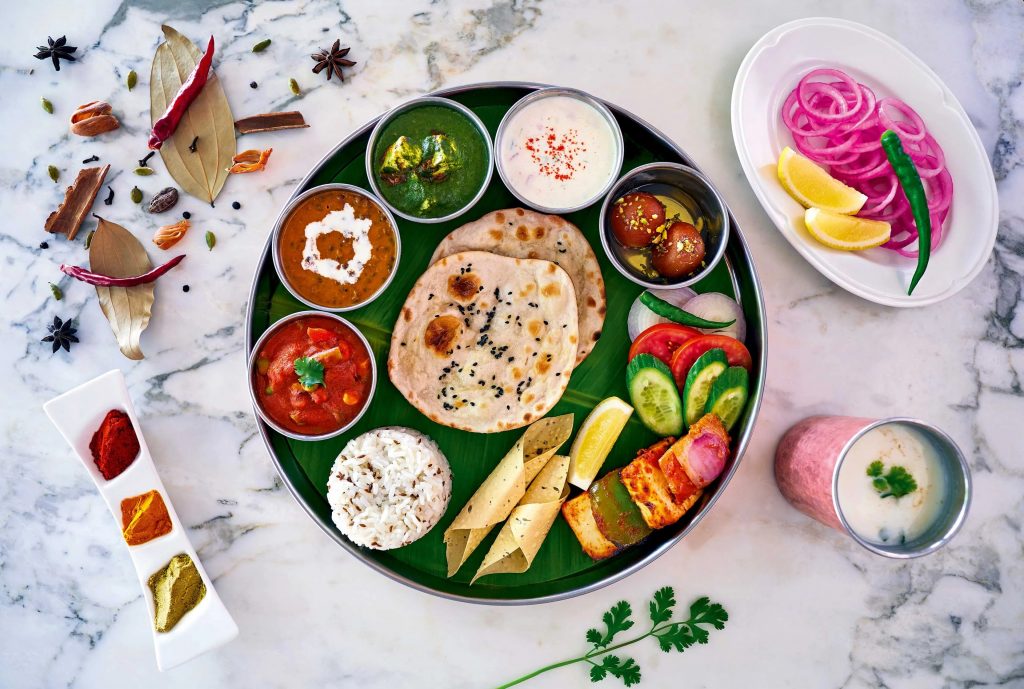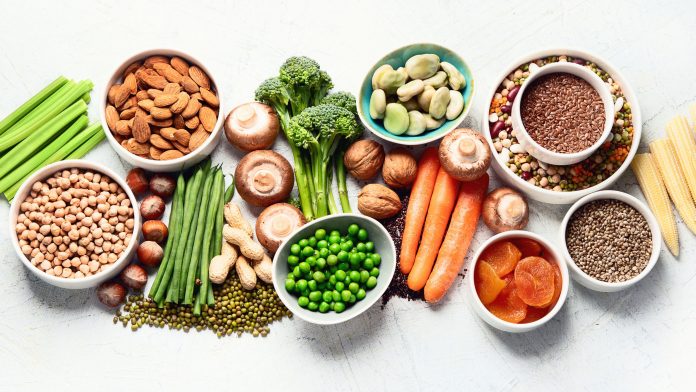Reading Time: 4 minutes
One of the best parts about eating a plant-based diet is that you can design it to fit your lifestyle
Plant-based or plant-forward eating patterns focus on foods primarily from plants. This includes not only fruits and vegetables, but also nuts, seeds, oils, whole grains, legumes, and beans. It doesn’t mean that you are vegetarian or vegan and never eat meat or dairy. Rather, you are proportionately choosing more or the majority of your foods from plant sources.
What are plant-based foods?
A plant based diet involves consuming mostly or only on foods that come from plants.
However, people understand, interpret and use the term plant based diet in different ways.
Some people interpret it as a vegan diet, which involves avoiding all animal products.
Some choose to be vegetarian, avoiding all meats, fish, and eggs.
For others, a plant based diet means that plant foods, such as fruits, vegetables, whole grains, nuts, and legumes, are the main focus of their diet, but they may, occasionally, consume meat, fish, or dairy products.
What are the benefits of shifting towards plant-based foods?
The benefits of shifting towards plant-based foods are numerous.
Plant-based foods are generally healthier as they are typically low in saturated fats and cholesterol and high in fibre, vitamins, and minerals.
A plant based diet also focuses on healthful whole foods, rather than processed foods.
Following a plant based diet offers many possible health benefits like:
- Better weight management. People who eat a plant based diet have a healthy BMI (Body Mass Index.)
- Lower risk of obesity, heart disease, certain types of cancer, diabetes and less inflammation and allergies.
- Plant-based foods have a lower environmental impact compared to animal-based foods. Producing plant-based foods requires fewer natural resources, reduces greenhouse gas emissions, and helps conserve water.
- Favouring plant-based foods promotes animal welfare by reducing the demand for animal products.
Ways to increase your intake of a plant-based diet
In India, most cultures naturally follow a plant-based pattern of eating as our staple meal typically includes dal, roti, rice, sabzi, dahi and sprouts etc.
Here are some tips to help you increase your intake of a plant-based diet:
Eat lots of vegetables. Fill half your plate with vegetables at lunch and dinner. Make sure you include plenty of colors in choosing your vegetables. Enjoy vegetables as a snack with hummus, salsa, or guacamole.
Change the way you think about meat. Have smaller amounts. Use it as a garnish instead of a centerpiece.
Choose good fats. Fats in olive oil, olives, nuts and nut butters, seeds, and avocados are particularly healthy choices.
Cook legumes (Kabuli chana or chickpeas, rajma, peas, mixed usal, black beans etc.) and millets at least four times a week. Build these meals around beans, whole grains, and vegetables. Legumes are an excellent source of fibre and protein. Millets are excellent to keep your sugar levels in balance among other benefits. (Read https://seniorstoday.in/trending/millets-the-little-mega-nutrient
for more information on millets.)
Include whole grains and millets for breakfast or snacks. Start with oatmeal, quinoa, barley, nachni, and other varieties of millets. Idlis, dosas and cereals get a healthy and tasty twist when you choose millets and whole grains.
Fruit, nuts and seeds can be a nutritious plant-based breakfast or a satisfying sweet treat.
Add flax seed powder to your rotis. Soak chia seeds and just pop a spoonful during the day to get your daily nutrient level up.
Go for greens. Try a variety of green leafy vegetables such as kale, Swiss chard, spinach, and other greens every day.
Build a meal around a salad. Salads can be creative fun and delicious. Fill a bowl with salad greens such as romaine, spinach, arugula leafy greens. Add an assortment of other vegetables along with fresh herbs, beans, carrots, cucumber, peas, or tofu.
Plant based milk is a good option. If you want to reduce your dairy intake, there are a wide range of plant based milks available in supermarkets and online. Read our article for more information: https://seniorstoday.in/trending/the-evolution-of-milk

CN Traveller reports 11 hotels in the Maldives have opted for Indian thalis as they burst with plant-based ingredients
Final notes
- B12, calcium, iron, protein are nutrients that may cause concern, but they are adequately covered in plant-based foods.
- Omega-3 has always been a concern because though foods like walnut hempseed, and flaxseed, contain omega-3 ALA, (Alpha Linoleic Acid), research indicates that the body is slow and inefficient at converting ALA. Some people are also genetically at risk for poor absorption of ALA. Eating fish and seafood or taking fish oil supplements may help this concern.
- Be informed before you pick up foods from the frozen section which are plant-based meats. Though the base of plant-based meats is a plant (usually soybeans, peas, and/or wheat), these ingredients have been highly processed. In most cases the main ingredients are stripped down to high-protein, low-fibre, powders mixed with preservatives, oils, natural or artificial coloring, gums, and sodium high seasonings. Just because something is ‘plant-based’ doesn’t mean it’s automatically healthy, or automatically better for you.
One of the best parts about eating a plant-based diet is that you can design it to fit your lifestyle. Plus you will feel the difference in your body, once you incorporate more plant-rich sources of food.
As always, speak to your doctor or dietitian before making significant changes in your diet.



